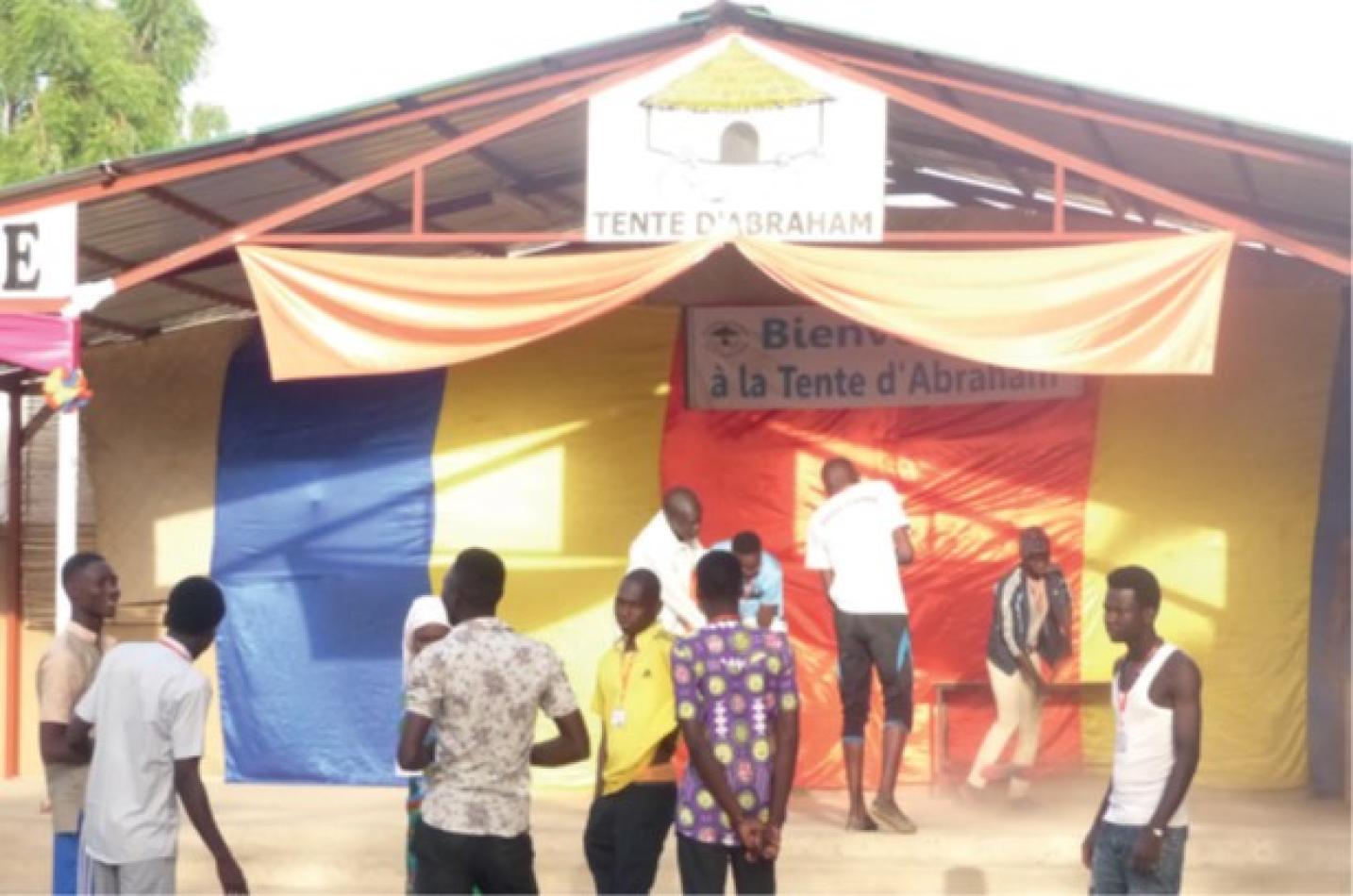Daniel Comboni
Comboni Missionaries
Institutional area
Other links
Newsletter
Saturday, February 11, 2023
Second Comboni Social Forum at “Abraham’s Tent” in N’Djamena The second edition of the Comboni Social Forum was held from 26 to 30 December 2022 at the “Abraham’s Tent” Dialogue Center in N’Djamena, entitled: “Unity is strength – Advice and solutions for cohabitation, peace and the protection of our common home, planet earth”.
This second Forum saw the participation of the delegations of Abéché, Dono-Manga and Moïssala, and of some parishes of N’Djaména. The awareness raised throughout the year meant that the organisation of the event was excellent and well received and that the daily program was carried out without too many hitches.
The themes addressed in the three-day event were inspired by three themes that are particularly important in the socio-religious situation of Chad:
a) interreligious dialogue (dealt with in the second and third 6conferences);
b) the importance of an integral ecology according to the indications of Laudato Si’;
c) the proposal of non-violence as a need to live human fraternity, even in a context of conflict such as that of Chad.
The lecturers excellently fulfilled the task of illustrating the issues entrusted to them, taken up and then shared in the group work following each report.
There was no shortage of setbacks and difficulties, due to the non-arrival of two of the invited speakers. However, Father Patrice M, – pastor of the parish “San Carlo Borromeo”, on the outskirts of the city – brilliantly replaced the former, with an attractive reflection on the theme of “peaceful cohabitation” in Chad, which aroused a lively and exciting debate among the participants. The Comboni Father Kasereka Amini Wasingya, on the other hand, did not make us regret the second absentee, Dr. Abakar Walat, presenting a lively development of the planned theme – “The Islamic nation” – in a clear and attractive way. The intervention of the latter speaker on issues related to the social doctrine of the Church was very engaging, clearly highlighting the importance of education in non-violence practised in the context of living together. The various topics presented and discussed literally “warmed up” the audience, arousing extremely interesting debates, both in the classroom and in the working groups.
What happily surprised the organisers was the fact that the audience was made up mostly of young Chadians (Muslims and Christians) who, for three days, lived, reflected, worked and prayed together, offering a surprising example of a “peaceful cohabitation” lived in the most real and concrete way possible.
This was the most beautiful fruit of the initiative, and it is hoped that it will last. Although the socio-political and economic situation of the country is extremely tense, arduous, painful and even cruel, in their final resolutions the Forum participants highlighted the importance of “coming together” from the different parts of Chad for a participatory reflection on the future of the country. They did not fail to underline the need to continue carrying out initiatives of this kind: “Only in this way will we be able to foster the spirit that we positively experienced during the Forum, and present it as a concrete proposal to all young Chadians, in particular to those who, for one reason or another, were unable to participate”.
The Forum acquires a strong value as a ‘place’ and ‘moment’ for reflection and participation. Obviously, this challenges us Comboni Missionaries and spurs us on, in the context of educational proposals for interreligious dialogue, to launch similar initiatives in all the human communities in which we live, also broadening our commitment towards non-Christians, so that “peaceful cohabitation” in Chad is assumed, lived and proposed for the well-being of all.
Finally, a word of thanks must be addressed to the Comboni confreres of the communities participating in the Forum, to the speakers who urged the young people to become protagonists of cohabitation. Despite the difficulties, we managed to create the Forum and crown it with success.
Now it’s up to all of us to make the ideas that emerged from this meeting bear fruit. No one should refuse their input. With hope, joy and patience, we make an appointment for the third Comboni Forum, which will be celebrated in Abéché.
Enrico Gonzales, mccj




